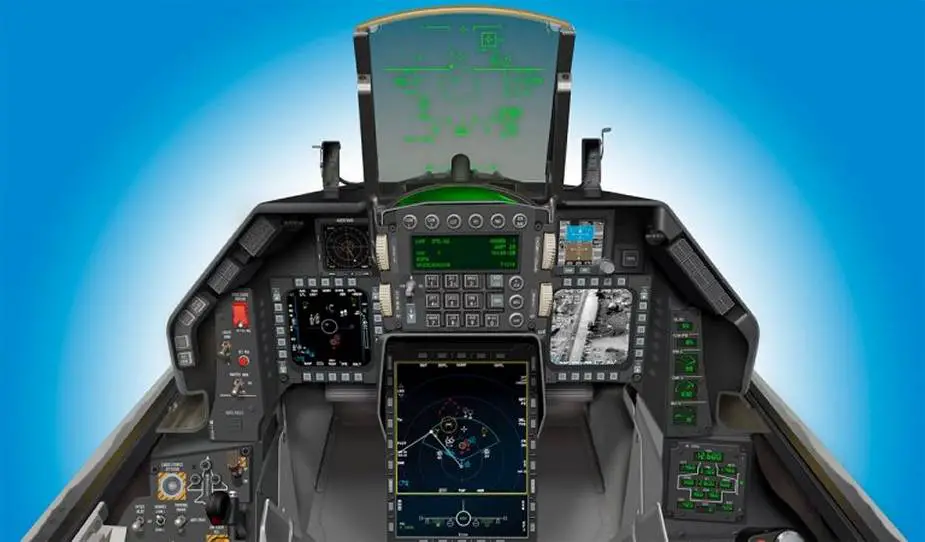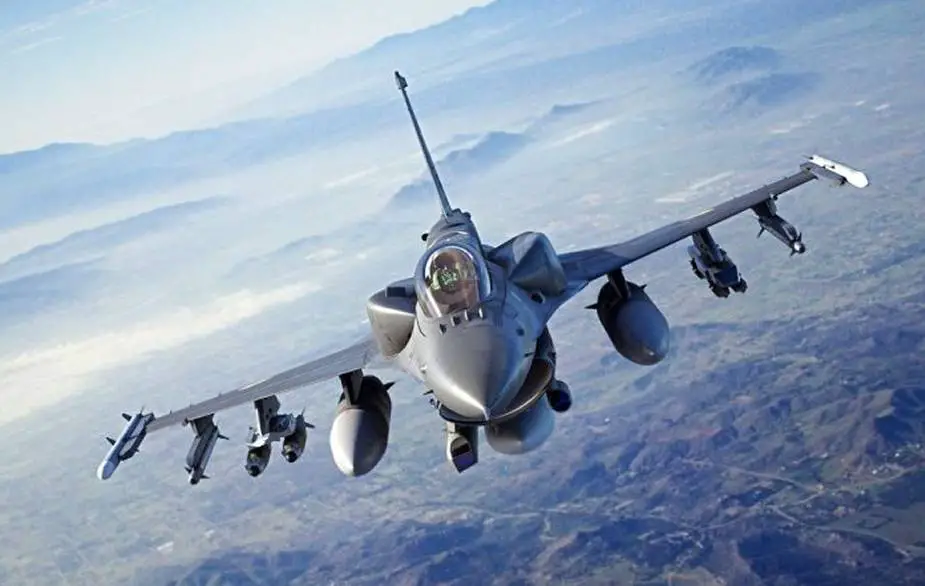Breaking news
Bahrain Air Force to receive its first Lockheed Martin F-16 Block 70 on March 10.
Lockheed Martin has announced senior Bahraini, U.S. government, military and aerospace industry officials are celebrating the delivery of the first Royal Bahraini Air Force F-16 Block 70. The event, which will take place on Friday, March 10, marks a major milestone for the F-16 Block 70 program, demonstrating Lockheed Martin's commitment to advancing the program and getting this much-needed aircraft and its advanced 21st Century Security capabilities to the warfighter.
Follow Air Recognition on Google News at this link
 This F-16 Block 70 jet is the first of 16 jets for Bahrain. It took its first flight on Jan. 24, 2023 (Picture source: Lockheed Martin)
This F-16 Block 70 jet is the first of 16 jets for Bahrain. It took its first flight on Jan. 24, 2023 (Picture source: Lockheed Martin)
This F-16 Block 70 jet is the first of 16 jets for Bahrain. It took its first flight on Jan. 24, 2023. From here, it will begin additional flight tests at Edwards Air Force Base before arriving in Bahrain in 2024.
Six countries have selected Block 70/72 aircraft. In addition to the current official backlog of 127 jets to-date to be built in Greenville, Jordan has signed a Letter of Offer and Acceptance (LOA) for 12 jets and Lockheed Martin has received a contract to begin its long-lead activities. Bulgaria has also signed an LOA for an additional eight jets for its fleet. Once these are finalized, the backlog will increase to 147.
Advanced radar
Northrop Grumman’s advanced APG-83 AESA radar provides Block 70/72 with 5th Generation fighter radar capabilities by leveraging hardware and software commonality with F-22 and F-35 AESA radars. It delivers greater situational awareness, flexibility and quicker all-weather targeting and provides pilots with unprecedented target area detail and digital map displays that can be tailored with slew and zoom features.
 The Block 70/72 features a new, high-resolution Center Pedestal Display (CPD), which provides critical tactical imagery to pilots (Picture source: Lockheed Martin)
The Block 70/72 features a new, high-resolution Center Pedestal Display (CPD), which provides critical tactical imagery to pilots (Picture source: Lockheed Martin)
Enhanced battlespace awareness
The Block 70/72 features a new, high-resolution Center Pedestal Display (CPD), which provides critical tactical imagery to pilots and allows them to take full advantage of AESA and targeting pod data. The new CPD enables color-moving maps, larger and easier-to-manage air-to-air Situation Displays, zoom functionality with the ability to switch information among displays, digital display of Flight Instrument Data, and a color/night helmet-mounted display. Additional integration of the Lockheed Martin Sniper® Advanced Targeting Pod and Legion-ES™ IRST system increase pilot situational awareness and enhance warfighter survivability.
Saving tomorrow’s pilots
Developed by Lockheed Martin, the Automatic Ground Collision Avoidance System (Auto GCAS) was purpose-built to prevent deadly crashes and has already saved the lives of multiple pilots and F-16s since the system entered service with the U.S. Air Force in late 2014. The Auto GCAS is designed to reduce incidents of what is known as controlled flight into terrain, or CFIT. According to U.S. Air Force statistics, CFIT incidents account for 26 percent of aircraft losses and a staggering 75 percent of all F-16 pilot fatalities.
 In concert with the U.S. Air Force and multiple F-16 Foreign Military Sales customers, Lockheed Martin has certified more than 3,300 carriage and release configurations for greater than 180 weapon and store types (Picture source: Lockheed Martin)
In concert with the U.S. Air Force and multiple F-16 Foreign Military Sales customers, Lockheed Martin has certified more than 3,300 carriage and release configurations for greater than 180 weapon and store types (Picture source: Lockheed Martin)
Weapon integration
Lockheed Martin has more than 36 years of weapon integration experience with the F-16 – enabling it to be one of the most versatile multirole fighters ever. In concert with the U.S. Air Force and multiple F-16 Foreign Military Sales customers, Lockheed Martin has certified more than 3,300 carriage and release configurations for greater than 180 weapon and store types.
Extended structural capabilities
The Block 70/72 has an industry-leading extended structural life to 12,000 hours - more than 50 percent beyond that of previous production F-16 aircraft. That means a highly reliable, readily maintainable jet of at least 40 years of service life for most air forces, with no expected extended structural repairs throughout that entire lifetime. The conformal fuel tanks provide increased fuel and added range, without sacrificing the aerodynamic performance of the jet, along with an improved performance engine..


























